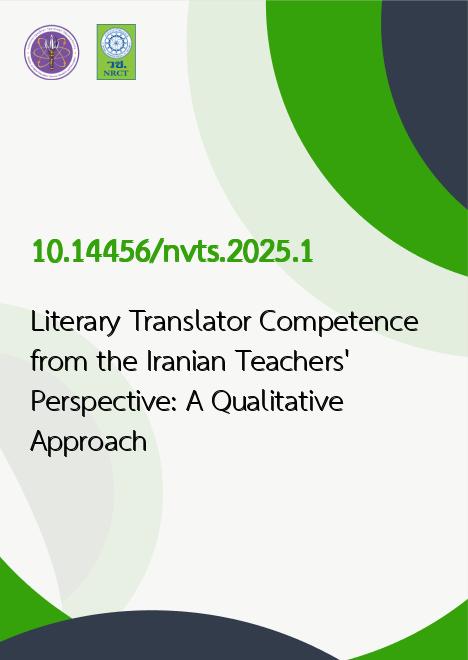
|
Literary Translator Competence from the Iranian Teachers’ Perspective: A Qualitative Approach |
|---|---|
| รหัสดีโอไอ | |
| Creator | 1. Moslem Fatollahi 2. Mohammad Reza Hashemi |
| Title | Literary Translator Competence from the Iranian Teachers’ Perspective: A Qualitative Approach |
| Publisher | IATIS and Chalermprakiat Center of Translation and Interpretation at Chulalongkorn University |
| Publication Year | 2568 |
| Journal Title | New Voices in Translation Studies |
| Journal Vol. | 30 |
| Journal No. | 1 |
| Page no. | 1-30 |
| Keyword | competence, subcompetence, translation teacher, literary translator |
| URL Website | https://newvoices.arts.chula.ac.th/ |
| Website title | New Voices in Translation Studies |
| ISSN | 1819-5644 |
| Abstract | Translation teaching in Iranian universities has a history of several decades. One of the courses included in the bachelor's curriculum of translation and English language and literature is the course "Literary Translation". Despite this, literary translation as an independent genre and type of translation has received less attention from Iranian researchers. It is necessary to examine the views of the stake-holders active in this field, including teachers of literary translation, about the goals of teaching this course. The purpose of this research is to describe and analyze the perspectives of literary translation teachers in Iran's high-ranking universities about literary translator competence. To this end, the views of 39 teachers of literary translation were collected through semi-structured interviews and analyzed using thematic analysis, and the subcompetences that teachers considered for literary translation competence were described and categorized. By analyzing the teachers' interviews, a total of 6 subcompetences and 22 components of literary translator competence were identified. The results of the thematic analysis showed that the classification obtained in this research includes most of the subcompetences described in previous models of translation competence, and it also reveals some special subcompetences needed by literary translators in the context of Iranian literary translation market, such as familiarity with translation tradition, flexibility, inborn talent, literary habit, and emotional competence. |
